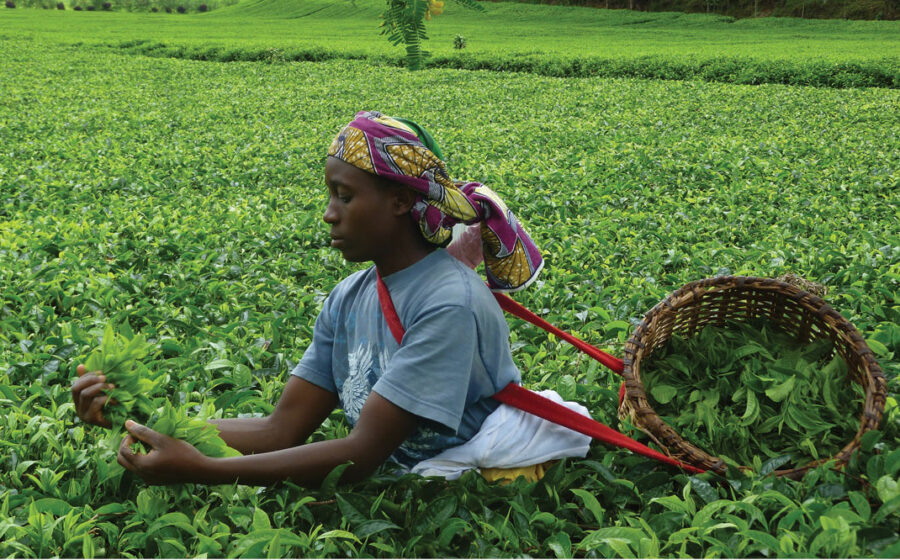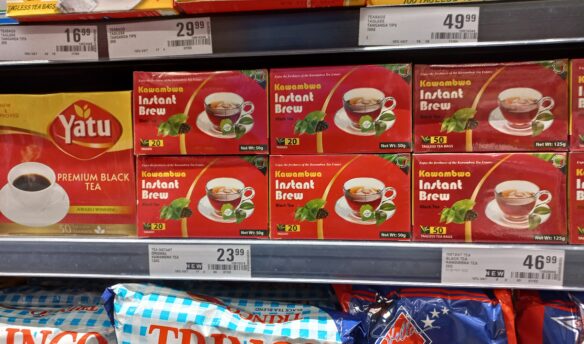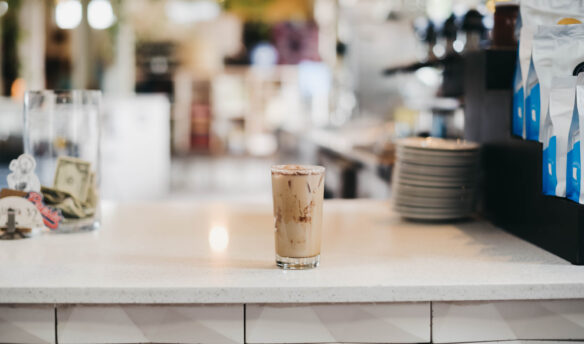[A]ndrew Wertheim always heard tales of Rwanda. His father, Joe, a U.S.-based tea importer, had become involved in Rwanda’s developing tea industry, and he would often regale Andrew with stories from his time there. And so it was in 1979, during the summer after his junior year of college, that Andrew found himself rattling along the dirt roads of Kinihira in the Rwandan highlands in a Volkswagen Beetle.
Andrew was intrigued to see the settings of his father’s stories for himself. The dramatic, leafy beauty of Rwanda’s high-altitude valleys impressed him from the start. This wasn’t Andrew’s first adventure in Africa. His father had taken him as a kid to visit the tea estates of Kericho, one of Kenya’s principal growing regions, giving him an early understanding and affinity for the lands at the producing end of the tea chain. He had also become comfortable on the African roads during safaris the family had taken during their time in Kenya.
[T]he Cyohoha valleys of Kinihira previously contained vast swamplands, until the Dutch drained them in the 1960s with French development money. The result was a cluster of valleys containing perfectly level, very fertile plains at their base. Gradually, with some kickstarting financial help—from the United States this time—Camellia assamica variety tea was planted, farmed by the locals and hauled to a factory about thirty miles away for manufacture.
In the early 1970s, Joe Wertheim had become a regular visitor to Africa for buying and consulting. He began negotiating with the Rwandan government to set up a factory above the Cyohoha valleys in return for the lease on a piece of land to grow tea. A joint venture agreement was signed in March 1975, and construction began on Sorwathé, Rwanda’s first private tea factory. The project was completed in 1978 and the machines began to roll.
Today, it is the single largest tea factory in the country, manufacturing an impressive three million tons annually, accounting for fifteen percent of Rwanda’s total tea output. Focusing primarily on the export market, the CTC factory is now set up with four full lines of modern machinery, including computerized monitoring, and it adheres to all necessary international ethical norms and industrial standards. In the field, twenty percent of the growing is in traditional plantation model, while the other eighty percent is farmed by a cooperative of smallholders. The company-owned tea fields are visibly defined—the neatly pruned plantation fields are a clear contrast from the “freestyle” patchwork of the cooperative’s land. At the end of the day, all of the green leaf passes through the same factory. With its social development roots, Sorwathé has continued to focus on humanitarian values through housing, schooling and smallholder farmer projects. Sorwathé is certified fair-trade and by Rainforest Alliance and Ethical Tea Partnership. Recent estimates suggest that around 10,000 families are now sustained by the project.
[A]ndrew went to law school after college, and after graduation worked for seventeen years on Wall Street as a litigator for large corporations, financial institutions and securities firms, as well as the U.S. Securities and Exchange Commission. He watched proudly as his father, who had started Tea Importers of Westport, Conn., in 1953, became president of the Tea Association of the USA and the Tea Council representative for the United Nations. Tea Importers became one of the U.S. tea industry’s major players, supplying many of the larger packers from Lipton to Twinings. His father’s passion didn’t stop there—he had, among other tea ventures, purchased Hyperion Books and re-published the William H. Ukers classic “All About Tea” on the side, as well as pioneered this enormous, socially responsible project in Rwanda.
In 2000, Andrew felt the time was right to move into the family business. Joe, by then almost 80, was delighted, saying: “Well I’m not getting any younger—now would be perfect!” Andrew had absorbed a certain amount of tea knowledge through osmosis over the years, but the very different work environment from his Wall Street office and the complexities of the tea world proved challenging at first. He began spending long hours reading Ukers’ tome and as much other tea literature as he could get his hands on. He visited other growing regions in India and China. Joe introduced him to the tea industry’s inner-workings and the international tea community. Then at the core of the trade was the tasting room, where over time he learned to analyze and grade tea. It was a very different world, but he was quickly smitten.
Gradually Andrew took the helm, supplying his own energy and vision. In Rwanda, he found the Sorwathé project inspiring—the positive impact on the local population and the shared success felt from his father’s work helped fuel his enthusiasm. A new section of the factory for whole-leaf manufacture is now in operation, and Andrew and company have started experimentation with green and white teas for the specialty-tea market. In the near future, they will add a complete green tea unit. He has also converted more than 100 hectares (about 250 acres) of the garden to organic, with plans to do more. Productivity has increased, and he sees great potential for expansion. Looking forward to the future and the continual development of his father’s legacy, Andrew has also recently introduced his own two children, ages twenty-four and twenty-six, to Sorwathé.
On November 28, 2012, former Secretary of State Hillary Clinton presented the Secretary of State’s 2012 Award for Corporate Excellence to Sorwathé Ltd. of Rwanda. It came as a complete surprise to the Wertheims. Every year, the award recognizes U.S.-owned businesses that exhibit exemplary corporate citizenship, promote innovation and advance democratic principles around the world. Sorwathé is the first tea company to receive the honor. “We are proud of Sorwathé’s achievements and deeply honored by this award,” said Andrew, “which is very meaningful to all involved with the project.”
—Kevin Gascoyne is part owner of Camellia Sinensis, the author of several books on tea, and a regular traveler to tea-growing nations

















